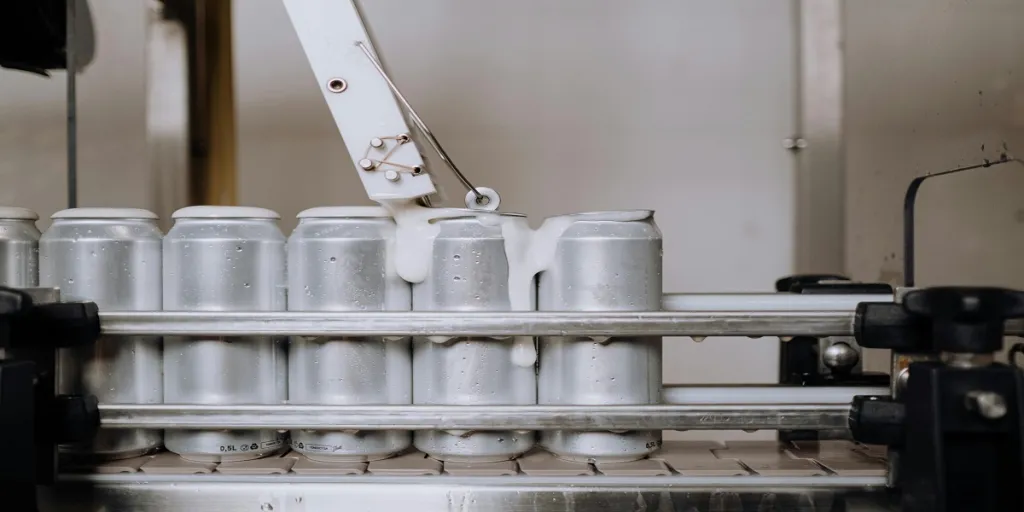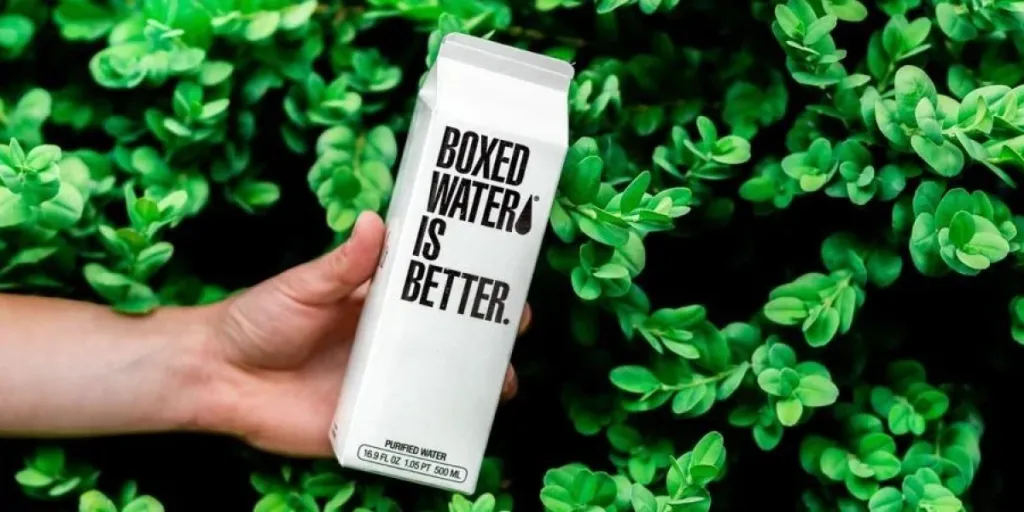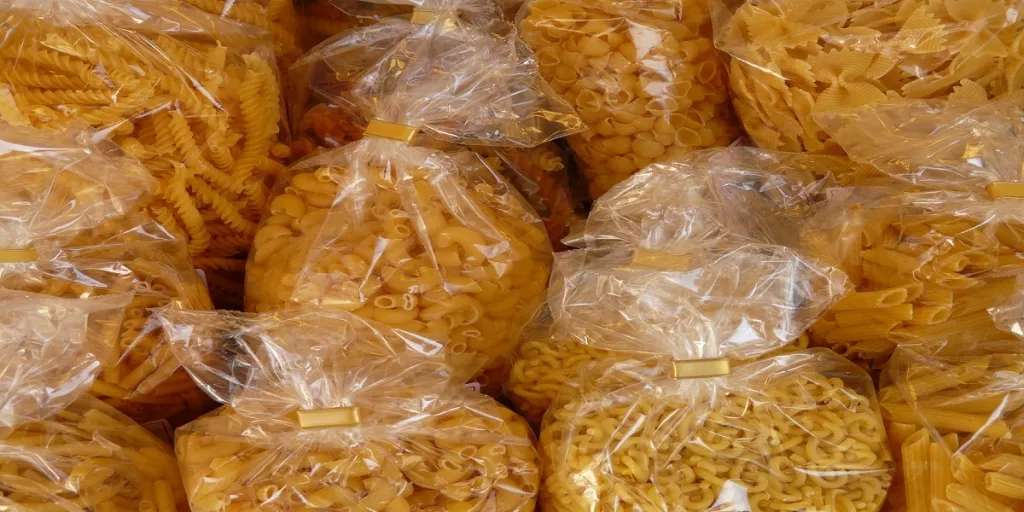The push for sustainable packaging in Europe is gaining momentum, driven by a combination of consumer demand, environmental awareness, and regulatory pressures.

Bottom-up pressure is a driving force in the consumer goods industry. As demand for eco-friendly products and solutions grows in Europe, retailers are pushing the packaging industry towards a more sustainable future.
Retailers’ purchasing decisions and sustainability commitments set trends that ripple through the entire supply chain, encouraging manufacturers to develop and provide eco-friendly packaging options.
By diversifying to include sustainable packaging solutions, European retailers are already setting new industry standards that have the power to accelerate the mainstream market’s transition to sustainable packaging.
Retailers that want to lead in this movement and keep up with the latest consumer trends need to understand the key factors involved in sustainable packaging to make informed and impactful decisions.
Evaluate the environmental benefits
There are different types of sustainable packaging, each one offers unique environmental benefits. Three of the most common examples are compostable, recyclable, and reusable packaging.
Compostable packaging reduces waste by breaking down into a valuable end-of-life product—compost—that returns important nutrients to the soil, promoting healthier ecosystems and enhancing soil fertility.
Increasingly, some types of alternative plastics are also compostable. Materials such as PLA (Polylactic Acid), bagasse (sugarcane fiber), and starch-based biological materials are commonly used in compostable packaging.
Recyclable packaging conserves resources by reducing the need for virgin materials. It lowers greenhouse gas emissions associated with the production of new materials and supports a circular economy by keeping existing materials in use.
Digital radio technology for industry: customised solutions for your site
Two-way digital radios have become the industry standard for effective communication. Overtaking analogue radios, digital radios provide higher channel capacities so sites do not have to worry about radio traffic, wide signal ranges that can be further increased with the…By Carroll Technologies
Common recyclable materials include paper, cardboard, glass, and certain plastics like PET and HDPE.
Reusable packaging minimises waste with a design intended for multiple uses. If reused enough, it can save resources by reducing the need for single-use packaging and can be cost-effective over time.
Examples include glass jars, stainless steel containers, and durable fabric bags.
By understanding these options, retailers can expand their packaging strategies in ways that align with sustainability goals and make sense for different product categories and operational needs.
Understand consumer preferences
A recent survey of ours in the UK revealed that 58% of consumers find it important to seek alternatives to traditional plastic packaging.
From a wider perspective, a comprehensive survey of over 9,000 consumers across Europe, North America, and South America found that 82% are willing to pay a premium for sustainable packaging. This shift in consumer behavior places significant pressure on retailers to offer eco-friendly products and packaging.
To effectively meet these expectations, retailers should take the time to understand their customers’ priorities, as preferences can vary between different brands and product categories.
For example, in the food and beverage category, sustainable packaging is really important because consumers are increasingly concerned about health and environmental impacts.
Similarly, in the beauty and personal care sector, customers often prefer eco-friendly packaging due to a growing emphasis on natural and organic products.
In the fashion and apparel industry, sustainable packaging is fast becoming a priority as consumers seek to reduce waste and support ethical manufacturing practices in their purchases.
A robust packaging strategy will account for varying consumer priorities, ensuring that sustainable options are offered where they matter most even as traditional packaging is maintained in other areas.
Assess cost-effectiveness and scalability
When assessing the cost-effectiveness of sustainable packaging solutions, retailers should evaluate the initial investment versus long-term savings.
Compostable and recyclable packaging may have higher upfront costs but they can reduce waste disposal fees and benefit from government incentives over time.
Conducting a thorough cost-benefit analysis, including production, transportation, and disposal costs, is crucial.
Additionally, larger orders can reduce per-unit costs, making sustainable options more affordable with increased adoption.
Scalability is another critical factor. Retailers need to ensure their supply chain can manage the transition to sustainable packaging materials without disruptions. This involves verifying the availability and reliability of suppliers for compostable and recyclable materials, as well as assessing the compatibility of these materials with existing packaging equipment and processes.
Exploring technological advancements, such as near-infrared sorting technologies, can also improve the efficiency and scalability of disposal operations for both compostable and recyclable packaging.
Investigate infrastructure and policies
European retailers need to understand the existing local infrastructure and policies as well as EU rules for waste management and the gaps that need to be addressed.
In Italy, for example, bans on single-use plastic bags, widespread composting and recycling programs, and initiatives to reduce plastic use in packaging have significantly advanced the country’s sustainability efforts.
In Ireland, discount supermarket chain Aldi has introduced 100% home compostable bags for their Irish Rooster Potato range, showcasing the country’s efforts in compostable packaging infrastructure.
However, there are still gaps in infrastructure across many parts of Europe where the collection and processing systems are not yet harmonized, leading to inconsistencies in how compostable materials are handled.
Addressing these infrastructural gaps is essential for the successful implementation and scaling of sustainable packaging solutions.
Future directions
Initial adopters of compostable packaging in the food, fashion, and dry goods sectors have shown promising results.
However, to make a significant impact and lead packaging manufacturers to offer a growing array of innovative sustainable options, it’s crucial for both small and large retailers to work collectively towards a greener future.
While SMEs can lead with agility and innovation, larger corporations have the resources to drive widespread change.
By embracing sustainable packaging together, and demanding more options in this realm, retailers of all sizes can reduce environmental impact and promote a greener economy.
Source from Retail Insight Network
Disclaimer: The information set forth above is provided by retail-insight-network.com independently of Chovm.com. Chovm.com makes no representation and warranties as to the quality and reliability of the seller and products. Chovm.com expressly disclaims any liability for breaches pertaining to the copyright of content.




